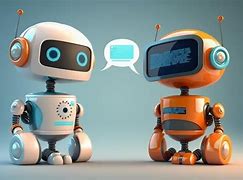Copycat or Creative Genius? The Reddit-ChatGPT Content Kerfuffle Explained
(Content Controversy: Does ChatGPT Plagiarize Reddit Posts?)
Picture this: You’re scrolling through Reddit, laughing at a wildly specific meme about avocado toast enthusiasts, when suddenly you spot a ChatGPT response that feels… eerily familiar. Wait, isn’t that your rant about mismatched socks from last Tuesday? Cue the dramatic gasp. Is ChatGPT moonlighting as a Reddit content thief, or is this just a case of algorithmic déjà vu? Let’s unpack the drama.
Reddit, the internet’s chaotic watercooler, is a treasure trove of raw, unfiltered human thought. From conspiracy theories about pigeons to heartfelt confessions about loving pineapple on pizza, it’s all there. Enter ChatGPT, the AI wordsmith that spins coherent answers faster than you can say “plagiarism lawsuit.” But when its responses start mirroring Reddit’s quirks, eyebrows rise. Is OpenAI’s bot casually cribbing notes from Redditors, or is this a misunderstanding of how AI learns? Spoiler: It’s complicated.
First, the basics. ChatGPT is trained on a colossal dataset that includes books, websites, and yes, public forums like Reddit. It doesn’t “copy” text like a sneaky student with a cheat sheet—it learns patterns, styles, and structures to generate original content. Think of it as a chef who samples every cuisine on Earth, then invents a new dish. But when the “new dish” tastes suspiciously like your aunt’s lasagna recipe posted on r/OldRecipes, things get awkward.
The controversy boils down to two questions: Where’s the line between learning and stealing? And who owns ideas once they’re tossed into the digital void? Take the case of a Reddit user who spotted a ChatGPT response nearly identical to their post about fixing a leaky faucet. Coincidence? Maybe. The AI could’ve absorbed similar advice from multiple sources, remixing it into a generic answer. But when phrasing overlaps word-for-word, accusations fly faster than a Twitter feud.
Here’s the twist: ChatGPT isn’t a search engine. It doesn’t fetch existing text—it predicts words based on patterns. Yet, its training data includes Reddit threads, so its outputs can mirror the tone, humor, or structure of popular posts. Imagine a parrot that doesn’t just repeat phrases but composes Shakespearean sonnets in your voice. Creepy? A little. Illegal? Not exactly.
Redditors aren’t unanimously outraged. Some shrug, calling it flattery. Others demand credit or compensation, arguing their unpaid labor fuels corporate AI. Meanwhile, OpenAI maintains that its models transform data into something new, avoiding direct replication. They’ve even implemented filters to block verbatim regurgitation of copyrighted material. But in the messy world of internet content, where memes morph and ideas blend, “originality” is a slippery fish.
The debate taps into bigger issues: Who controls digital footprints? Should public posts be fair game for AI training? And if an AI nails your sarcastic Reddit style, does that make it your digital doppelgänger? Platforms like Reddit sit in a gray zone. Users agree to terms allowing their content to be scraped, but few anticipated it would train chatbots to mimic their personalities.
Critics argue that AI’s reliance on human-created data exploits unpaid contributors. Boosters counter that tools like ChatGPT democratize knowledge, distilling collective wisdom into accessible formats. Both sides have a point. The real villain here might be ambiguity—laws and ethics haven’t caught up to AI’s rapid evolution.
So, does ChatGPT plagiarize Reddit? Not in the traditional “copy-paste” sense. But its ability to channel the spirit of a thousand Reddit threads blurs the line between inspiration and imitation. The answer depends on whether you see AI as a mirror reflecting humanity’s chaos or a vacuum sucking up creative crumbs.
(Content Controversy: Does ChatGPT Plagiarize Reddit Posts?)
In the end, the Reddit-ChatGPT saga is less about theft and more about identity. As AI grows smarter, we’re forced to ask: What makes human creativity unique? And if a machine can fake it convincingly, did we ever own it in the first place? Grab your popcorn—this debate isn’t ending soon.
Inquiry us
if you want to want to know more, please feel free to contact us. (nanotrun@yahoo.com)




